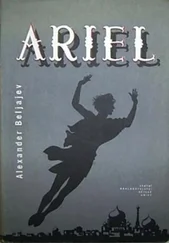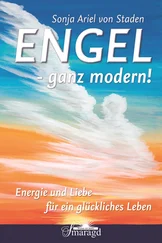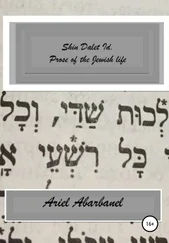Ariel Toaff - Blood Passover
Здесь есть возможность читать онлайн «Ariel Toaff - Blood Passover» весь текст электронной книги совершенно бесплатно (целиком полную версию без сокращений). В некоторых случаях можно слушать аудио, скачать через торрент в формате fb2 и присутствует краткое содержание. Жанр: Религиоведение, на английском языке. Описание произведения, (предисловие) а так же отзывы посетителей доступны на портале библиотеки ЛибКат.
- Название:Blood Passover
- Автор:
- Жанр:
- Год:неизвестен
- ISBN:нет данных
- Рейтинг книги:3 / 5. Голосов: 1
-
Избранное:Добавить в избранное
- Отзывы:
-
Ваша оценка:
- 60
- 1
- 2
- 3
- 4
- 5
Blood Passover: краткое содержание, описание и аннотация
Предлагаем к чтению аннотацию, описание, краткое содержание или предисловие (зависит от того, что написал сам автор книги «Blood Passover»). Если вы не нашли необходимую информацию о книге — напишите в комментариях, мы постараемся отыскать её.
Blood Passover — читать онлайн бесплатно полную книгу (весь текст) целиком
Ниже представлен текст книги, разбитый по страницам. Система сохранения места последней прочитанной страницы, позволяет с удобством читать онлайн бесплатно книгу «Blood Passover», без необходимости каждый раз заново искать на чём Вы остановились. Поставьте закладку, и сможете в любой момент перейти на страницу, на которой закончили чтение.
Интервал:
Закладка:
p. 216]
in the kitchen, by the steward, in putting the dish on the sideboard, and by the waiter, in placing it on table. The poison therefore had to be placed in the food after the last servant had tasted it. Israel Wolfgang said he was capable of choosing the right time, but needed to find the raw material, an effective and lethal poison. Upon his return to the castle at Buonconsiglio, he quickly set to work [672] "Salomon dixit sibi Wolfgango an posset venenare Reverendissimum D. Episcopum Tridentinum, cui Salomoni ipse Wolfgangus respondit quod praefatus Reverendissimus Dominus faciebat sibi fieri magnas custodias, faciendo sibi facere credentias, et quod ipse Wolfgangus tamen tentaret et videret si posset illum venenare. [...] Wolfgangus cogitaverat de venenando ipsum Reverendissimum Dominum et alios hoc modo, quia volebat conterere dictum venenum et postea se approximare credentiae, super qua deferentur fercula, quae postea deferuntur in mensam Reverendissimi Domini et tentare, si illud venenum poterat proijcere vel in vinum vel in fercula, et hoc interim dum dicta fercula starent super credentieria, pincerna aut aliis ibi existentibus non advertentibus" (cfr. [Bonelli], Dissertazione apologetica, cit., p. 146).
.
Among the stationary materials in the office, Israel Wolfgang knew there was a box containing materials belonging to a friend and colleague who had recently died, Friar Pietro, a German who had earned his living as a painter, miniaturist, and occasionally as an alchemist. The ingredients used by the monk in preparing his colors were bound to include some solid arsenic. Israel Wolfgang was not mistaken: a respectable chunk of red arsenic, or cinnabar-colored arsenic sulfide, soon found its way into his pockets.
The next night, the Saxon painter hasted to meet Fürstungar again; with justifiable satisfaction, Wolfgang showed him the poison he had obtained. But the astute and expert German go-getter only needed a glance to realize that that Wolfgang’s lump of bi-sulfide of arsenic was almost harmless, and would never have troubled the bishop of Trent with anything more serious than a passing belly-ache. At any rate, he offered to supply his young assassin as quickly as possible with good arsenic, capable of poisoning the bishop effectively [673] "Wolfgangus vidit dictum frustum veneni super disco in Cancellaria et accepit tantum de dicto veneno, quantum esset una avellana, et illud portavit ad dictum Salomonem, qui Salomon respondit quod illud non erat de bono veneno ad interficiendum et quod idem Salomon bene portaret de bono veneno pro interficiendo" (cfr. ibidem, p. 146).
. But for a variety of reasons, the project, although never formally abandoned, was to take another course, and Israel Wolfgang is not thought to have seen Salomone Fürstungar again.
Battista de' Giudici wasn’t discouraged either. Unable to meet the women and other defendants due to Hinderbach’s refusal, he concluded that he could do little by remaining at Trent. The hostile and intimidating climate -- as he saw it -- in which he was compelled to work, actually prevented him from making the desired progress in his inquiry [674] The apostolic commissioner also lamented the true and proper climate of Trent, humid and rainy, which is said to have reduced him to a state of infirmity for three weeks (see Battista de' Giudici, Apologia Iudaeorum. Invectiva contra Platinam , by D. Quaglioni, Roma, 1987, pp. 49-59).
. The failure of Salomone Fürstungar’s mission to Sigismundo, of which de’ Giudici had been duly informed, was only an obvious prelude to the imminent resumption of the trials, leaving him with very little time in which to work, carrying the dossiers to Rome with only moderate hope that the appeal process might be approved and that the defendants might be released before they suffered the anticipated punishment.
In very late September 1475, less than one month after de’ Giudici’s arrival in the city, the pontifical commissioner decided to leave Trent and move to Rivereto, outside Hinderbach's jurisdiction. The choice of city seemed a rather delicate one,
p. 217]
since Rovereto was known as the established general headquarters of the Ashkenazi Jewish community of northern Italy, actively mobilized some time before, in their efforts to exonerate the accused from any responsibility in Simonino’s murder. It was also foreseeable that the bishop would spare no pains in representing the apostolic functionary as being under the thumb of the Jews. And Hinderbach lost no time in stressing the unsuitability of de' Giudici’s decision. In a letter to the humanist friend Raffaele Zovenzoni, the bishop of Trent [Hinderbach] noted that the reasons for the commissioner’s [de’ Giudici’s] move to Rovereto were just phony excuses and that the presence of the Jews gathered in the city at that time was highly suspicious [675] In the missive, Hinderbach stressed that "Iudei et quidam doctores qui apud Rovredum, oppidum nobis vicinum, sunt, ubi etiam legatus ille seu commissarius se pretextu adverse valitudinis que illum et suos hic invasit pridem se reduxit" (Esposito e Quaglioni, Processi, cit., voI. I, p. 17).
.
Before leaving Trent, commissioner de’ Giudici sent his one-eyed notary to Israel Wolfgang to inform him, Wolfgang, of his, de’ Giudici’s intentions and later availability. De' Giudici, who intended to leave for Rome as quickly as possible to confer with the Pope and try to get him to stop the trials, is said to have warned the Saxon convert just in time for Wolfgang to reach Rovereto. In fact, the commissioner wished to take Wolfgang with him to see Sixtus IV, considering Wolfgang’s testimony of fundamental importance. At Rome, Israel Wolfgang is also thought to have been assisted financially, as usual, by Fürstungar. In the meantime, Wolfgang was to maintain his contacts with the commissioner and keep him informed of everything going on at Buonconsiglio, sending regular epistolary reports to his protector, Salomone da Piove, who was well able to make best use of them. But the most important recommendation was that Salomone should do everything in his power to enable the women to escape from their enforced confinement in Samuele’s home [676] In this regard, see Divina, Storia del beato Simone da Trento , cit., voI. II, pp. 93-94.
.
With the departure from Trent of Fürstungar, who continued, cautiously and with circumspection, to watch de' Giudici and his retinue in their every move, Israel Wolfgang became the only Jew, although formally converted, left in the city, able to render any assistance to the women and other detainees. He was perfectly aware of the delicate nature of this role. Although he was able to leave Trent without impediment, reaching liberty on other, safer shores, the young painter from Brandenburg was not prepared to abandon the dangerous mission which he had voluntarily assumed. He was certainly not lacking in either courage or recklessness. He is believed to have remained at Trent, engaged in his desperate attempt to save the women defendants, at the risk of his life, to the bitter end.
Immediately upon his arrived at Rovereto, the apostolic commissioner ordered the bishop of Trent to free the prisoners without delay, particularly, the women and children, and he prohibited subjecting them to torture. At the same time, the Jews presented Battista de' Giudice p. 218]
with an appeal disputing the validity of the trials, signed by Jacob da Riva and Jacob da Brescia [677] Cfr. ibidem, pp. 101-104; Esposito e Quaglioni, Processi , cit., voI. I, pp. 19-21.
. They were ready to accept it, instructing Hinderbach to respond to thirteen counts in an indictment accusing him, among other things, of bringing the trials solely to misappropriate the property of the condemned, estimated at twenty thousand florins.
Интервал:
Закладка:
Похожие книги на «Blood Passover»
Представляем Вашему вниманию похожие книги на «Blood Passover» списком для выбора. Мы отобрали схожую по названию и смыслу литературу в надежде предоставить читателям больше вариантов отыскать новые, интересные, ещё непрочитанные произведения.
Обсуждение, отзывы о книге «Blood Passover» и просто собственные мнения читателей. Оставьте ваши комментарии, напишите, что Вы думаете о произведении, его смысле или главных героях. Укажите что конкретно понравилось, а что нет, и почему Вы так считаете.












